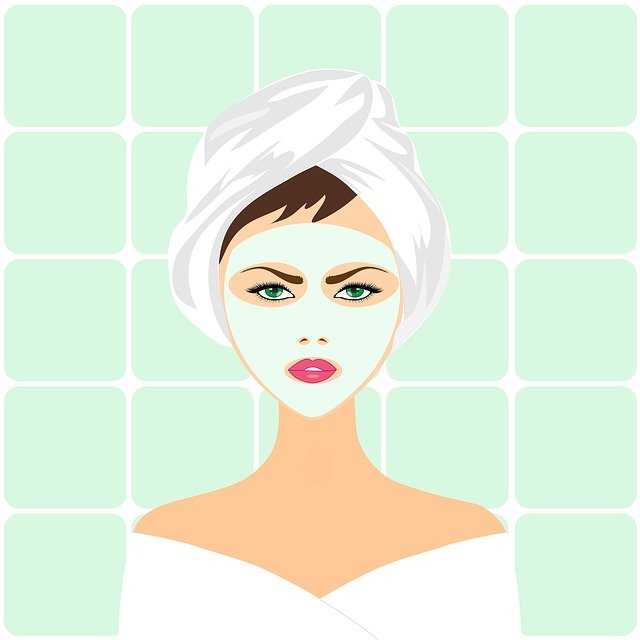Skin Care Routines For Different Skin Types

Skincare may be trendy these days, but giving your skin some attention provides both cosmetic and medical benefits.
Skincare must be attended to by those suffering from specific skin diseases such as psoriasis, eczema, rosacea, and acne. This demands a little more attention.
One thing you should always remember is that addressing a specific skin problem frequently demands the use of a specific skin-care routine.
Sometimes, your condition may cause your skin to become more sensitive to substances and products in general.

Getting a good skin-care routine that works for you will be a lifeline if you have been trying to manage and treat any form of skin disease.
There are countless wonderful skincare routines and products available, and you may have tried them all, but are these skincare regimens and products suitable for your skin?
To solve this problem, we must first understand the various skin types. There are five skin types, and you must fall into one of them.
Common Types of skin conditions
Adopting an acne routine that includes gentle, yet effective products with proven ingredients that can keep your skin clear, healthy, and moisturized is the first step in eliminating blemishes and preventing breakouts.
#1. Eczema Skin Condition
Eczema is a skin disorder that causes inflammation or irritation of the skin. Although there is no cure for eczema, it can be managed by using antihistamine and hydrocortisone cream on a regular basis.
#2. Psoriasis Skin Condition
Psoriasis is a skin ailment that causes red, itchy scaly areas on the knee, elbow, spine, and scalp. It is an incurable disease that can be managed with the correct medication.
#3. Acne Skin Condition
Acne is another skin problem that primarily affects teenagers and young adults. It happens when dead skin cells and oil clog the hair follicles, resulting in painful red pimples packed with pus on the skin.
Cleansing, exfoliating, moisturizing, and toning help acne-prone skin.

#4. Rosacea is a skin condition
Rosacea is a skin disorder that mostly affects the face, causing red patches and visible blood vessels. Rosacea can also cause problems with the back, cheeks, chest, and eyes.
Even though this is a permanent problem, there are medical therapies that can help manage it, so contact your dermatologist for the essential and suggested treatment.
Different Skincare Routines
#1. Moisturizing
Thick moisturizers are essential at night to protect, moisturize, and restore skin. Night lotions designed specifically for the thin, delicate skin around the eyes are also recommended.
#2. Treat with warm water
Did you know that washing your face with warm water expands your pores, making it an excellent time to apply toner, serum, eye creams, spot treatments for chronic conditions, and anti-aging treatments?
Don't rush; you'll want to give the therapy time to absorb before using a moisturizer.
#3. Protect from the sun
As you begin your day, apply sunscreen-containing moisturizers to your skin to protect it from the sun. If your moisturizer does not include sunscreen, use a broad-spectrum sunscreen with an SPF of 30 or higher to your face every day.
Wear sunscreen on any other parts of your body that will be under direct sunlight (hands, arms, neck, etc.).
#4. Night Time Treat
The nightly treatment method is similar to the morning routine, but the emphasis should be on healing, so utilize anti-aging products, deep moisturizing serums, and other hydration and healing products.
Steps to Follow In Skin Care Regimen
#1. Less is more
As your skin-care routine develops and evolves, arguably the most crucial thing to remember while slathering on creams is that less is often more.
Stick to products with fewer ingredients and those are fragrance-free, and try new items one at a time to see how your skin reacts.
#2. Have patience
You need to be patient if you want to see results because the treatment may appear not to be working especially if you are just starting. Keep in mind that patience is required when it comes to skin.
"Don't overdo it," Shokeen advises. "Give your skin at least two to three months to adjust to a new product or active ingredient before switching."
#3. Stay Consistent with the routine
To really get a good result, you need to be consistent with your skin-care regimen steps every day, morning, and night. This is crucial to achieving and keeping meaningful benefits, as it is with many things in life.
Bottom line: Have faith in the process (and in yourself) and stick to any plan you devise for yourself.
Tips for Acne-prone Skin
Reduce flare-ups by sticking to your skincare routine. Choose a solution that can address all of your skin troubles, such as dryness and post-acne marks, in addition to your acne.
Take care of your skin at all times of the day and night, and use products intended for each. Most physicians recommend adhering to a complete acne program to keep acne-prone skin clear.
A consistent, uncomplicated acne skin care program can help minimize acne flare-ups and reduce the adverse effects produced by starting and stopping treatments on a regular basis.
By using the correct products, you can not only treat your acne, but also decrease or avoid additional issues such as dryness, post-acne markings, and more – all while protecting your skin from the sun.
Author Bio
Contributor comprises full-time and freelance writers that form an integral part of the Editorial team of Hubslides working on different stages of content writing and publishing with overall goals of enriching the readers' knowledge through research and publishing of quality content.
Article Comments
No Comments!
At present there are zero comments on this article.
Why not be the first to make a comment?
Similar Articles
Sponsor
Search Articles
Experts Column
Latest Articles
Featured Articles
Most Popular Articles












